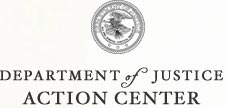


Thank you, Robert [Raben], for those kind words – and for the guidance, support, and friendship that you have provided to me for so many years. In fact, when I think of how long we’ve known each other, I’m especially grateful for the stories that you left out.
I also want to thank ACS’s visionary founder, Peter Rubin; its enthusiastic Executive Director, Caroline Fredrickson; its strong circle of supporters, including my friends at Covington and Burling; and its impressive, constantly expanding network of members. Over the last decade, this organization has become a powerful, critical voice in our nation’s most consequential discussions and debates. You have worked to ensure that the principles we hold most dear always trump calls for expediency or contests for political popularity. You have helped to safeguard our democracy and to strengthen our legal system. You’ve raised awareness about an impending crisis – and an alarming rate of vacancies – in our federal judiciary. You have challenged policymakers to address this – and made the case that highly qualified, capable individuals nominated by the President should have the chance to serve their country, in government posts and on the federal bench. And you have created a meeting ground for some of our nation’s most talented and insightful leaders and lawyers – and for thousands of young attorneys and students who give us all great hope for the future that we will share and – together – that we must build.
It is a pleasure to be with you all. And it’s an honor to be invited, once again, to participate in this annual convention.
In June of 2008 – the summer before I became Attorney General and Barack Obama became our President – I stood before you. And I joined with many of you in lamenting the fact that, with respect to its commitment to the Constitution and to the rule of law, our government had lost its way.
That evening, even as our shared concerns weighed heavily upon us, there was a palpable sense of hope; a common faith that – despite the odds against us and the challenges before us – our nation could correct course, just as it always has – even during some of the darkest moments in our constitutional history.
Three years later – although the struggle has been far more difficult than anyone might have predicted, and although some of you have not agreed with every decision this Administration has made – I am pleased to report that, as a nation, we have begun to find our footing once again. This Administration is moving in a direction that is guided, not by fear – but by fact, by reason, and by a commitment to advancing the cause of justice and to upholding our nation’s most essential and enduring values.
In this work, I am extremely proud of the contributions that the Department of Justice has made.
Over the last two years, we’ve taken meaningful steps to prevent and combat terrorism, violent crime, and financial fraud. And we’ve identified innovative, collaborative ways to protect the most vulnerable members of our society, as well as the law enforcement officers who keep us all safe.
In addition to these priority areas, we’ve advanced our fight against international crime networks, drug cartels, gangs, and cyber criminals – and pushed those who have the power to reduce today’s unacceptable backlog of judicial nominations to take action – and to do the right thing. We’ve also focused on safeguarding our environment – and acted quickly to respond to, and to seek justice for those affected by, the largest oil spill in U.S history. And we’ve successfully advocated for greater fairness in our sentencing policies – work that continues in our current efforts to ensure that reductions in the unjust disparity between crack and powder cocaine offenses are applied retroactively.
But, tonight, I’m especially pleased to report that we have reinvigorated the important work of our Civil Rights Division. Not only is this office once again open for business – it has never been stronger.
As some of you know, during this Administration’s first fiscal year, the Department filed a record number of civil rights criminal cases. The following year, we broke this record. In recent months, we’ve prosecuted the largest human trafficking case in history – and, just yesterday, secured guilty pleas from three defendants. We have addressed more than 100 open matters under the landmark Matthew Shepard and James Byrd, Jr. Hate Crimes Prevention Act – critical legislation that so many of us, including Senator Whitehouse and Congressman Conyers, worked tirelessly to move forward. The Department has secured the first convictions under this new law. We’ve also expanded enforcement efforts to guarantee that – in our workplaces and military bases; in our housing and lending markets; in our voting booths and border areas; in our schools and places of worship – the rights of all Americans are protected.
In addition to strengthening this essential division, the Department has established an entirely new component – our Access to Justice Office. This groundbreaking initiative was launched last year – with the help and leadership of one of ACS’s most dedicated members, our dear friend, Larry Tribe. The work that’s currently underway in this office – which now is being led by Senior Counselor Mark Childress, who I’m glad is here with us tonight – reflects an historic assurance that, at long last, expanding access to legal services is – and will continue to be – a national priority.
Many of you have shown extraordinary support for the goals of this initiative. And I have no doubt that, with your continued partnership, we can build upon the progress it has made in protecting funding for – and expanding access to – legal services, and raising awareness about the challenges that current – and future – lawyers must help to address. While I’m not naïve about today’s budget limitations, I am confident that we can find the solutions that we need to ensure the integrity of our legal system and to honor the promise of equal justice for all.
Beyond this work, I am proud – and every citizen, every steward of our justice system, and every member of our nation’s legal community can be encouraged – that, in fulfilling our paramount responsibility to protect the American people, the Justice Department has led with strength and by example. Even as we’ve confronted unprecedented, and increasingly sophisticated, national security threats, we’ve made historic progress – without giving in to fear, or compromising our values as Americans.
Of course, we have not won every argument. We have not achieved some of our goals as quickly as we would have liked. And, although we have pledged to use every tool available to keep the American people safe, attempts have been made to tie our hands and limit our options.
The American people deserve better. That’s why we must demand more – from our policymakers, from our fellow citizens, and from ourselves.
It will take a collective effort – and collaboration between partners inside and outside of government – to reestablish our nation’s moral authority, to reaffirm our guiding principles, to rid our public dialogue about these issues of fear mongering, and to remove politics from prosecutorial determinations.
Politics has no place – no place – in the impartial and effective administration of justice. Decisions about how, where, and when to prosecute must be made by prosecutors, not politicians. And this is true for every case, whether it involves brutal terrorists or white collar criminals.
So long as I am privileged to serve as Attorney General, I will defend the exclusive right of the Executive Branch to determine appropriate venues and mechanisms for all criminal trials. And I will continue to point out one indisputable fact, which has been proven repeatedly, during this Administration and the previous one: in disrupting potential attacks and effectively interrogating, prosecuting, and incarcerating terrorists – there is, quite simply, no more powerful tool than our civilian court system.
Despite this fact, some in Congress have proposed to ban the use of Article III courts in prosecuting terrorism-related cases. They claim that utilizing our civilian court system – as we have for more than 200 years – would somehow jeopardize public safety.
I don’t need to be told – by anyone – about the seriousness of the dangers we face. I begin each day with a briefing on the most urgent threats made against the United States in the preceding 24 hours. I know that – in distant countries, and within our own borders – there are people intent on, and actively plotting to, kill Americans.
For nearly as long as your organization has existed, our nation has been at war. And like every person in this room, like the President and those who serve this Administration, and like every Member of Congress, I am determined to defeat our enemies. I know we can, and I am certain we will. But victory and security will not come easily. And they won’t come at all if we adhere to a rigid ideology, adopt a narrow methodology, or abandon our most effective terror-fighting weapon – our Article III court system.
Despite this reality, we continue to see overheated rhetoric that is detached from history – and from the facts. We see crucial national security tools, once again, being put at risk by those who disparage the American criminal justice system, and misguidedly claim that terror suspects cannot be tried safely in our civilian courts.
Here are the facts: Every single suspected terrorist captured on American soil – before and after the September 11th attacks – has first been taken into custody by law enforcement – not the United States military. Our criminal justice system has proven – time and again – that it provides all the authority and flexibility we need to effectively combat terrorist threats. Since 9/11, hundreds of individuals have been convicted of terrorism or terrorism-related offenses in civilian courts.
Not one of these individuals has escaped custody. Not one of the judicial districts involved has suffered retaliatory attacks. And not one of these terrorists arrested on American soil has been tried by a military commission. Not by the Obama Administration – and not by the Bush Administration. Not a single one.
Even though excellent work has been done to improve and reform the military commissions, these tribunals are largely untested. Without civilian law enforcement and Article III courts, our ability to disrupt, dismantle, and defeat terror plots; to secure actionable intelligence; to enlist international cooperation; and to punish those who have – and who intend to – harm Americans would be seriously damaged.
For these reasons, we must speak out. And we must set the record straight. In this work, I pledge my own best efforts. And, tonight, I ask for yours.
We cannot – and we must not – allow the public safety concerns that all Americans share to divide us – or to compromise the principles that have always defined and distinguished our nation, and our people.
Together, we must stand up for the values enshrined in our Constitution. And we must ensure that the rule of law – which, for more than two centuries, has held this nation together and made America an example for all the world – is not seen as an obstacle to be overcome. Instead, it must be recognized as the foundation for our continued security – and our future progress.
Achieving this goal is our collective responsibility. And it must become our common cause. So, tonight, as we reflect on the ideals that have defined our history and will determine our destiny, let us also recommit ourselves to honoring our most sacred principles – in the work that we do each day, and in our ongoing pursuit of a more secure, more just, and more perfect union.
Thank you.




